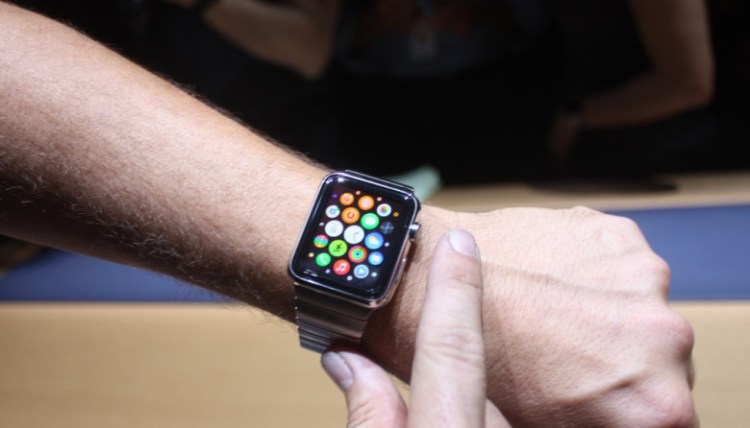Apple has far wider aspirations for the Apple Watch than just consumer sales. As with the iPad, the company wants to sell the device into vertical enterprises like health care organizations.
But unlike with the iPad, Apple wants to get started with vertical industries from the get-go with the Watch instead of waiting around for a few generations of the device.
In fact, Apple has just posted a job listing at its site for an “Apple Watch Marketing Specialist,” who will very likely be charged with selling the Watch into enterprises. And the only vertical that is mentioned in the ad is health.
Using the Watch for health applications within the enterprise will likely take two forms.
Apple is working with app developers to create Watch apps that can be used by care providers in hospitals and clinics. These could be HIPAA-compliant quick communication devices, and they could potentially fill the role that pagers continue to serve in some hospitals. We will find out much more about these apps as they are announced at the health care IT industry’s big annual shindig, Healthcare Information and Management Systems Society (HIMSS), which kicks off next week.
The Watch will also very likely be sold directly to Fortune 500 businesses like Coke and Nike. Large companies like that are increasingly interested in self-insuring for health coverage, and every dollar they save in prevention is one they keep on the top line. The name of the game becomes keeping employees out of the doctor’s office. So incentivizing employees to use the health apps on the Watch, and maybe buying large quantities of Watches to give to employees, might pay dividends for large enterprises.
And yet, the Watch remains limited in some ways for the enterprise. While the near-field communications (NFC) chip in the Watch can be used for mobile payments (independent of the phone), the chip is off limits to app developers right now.
So an enterprise could not develop an app that uses the chip to authenticate certain employees to access certain facilities or resources within the enterprise. It could not, for instance, authorize a doctor to access certain health records in a computer system, or to access blood reserves in a cooler.
The distribution of Watches to enterprise employees as part of wellness programs has downsides, too. Giving away $150 Fitbits is one thing, but Apple Watches are pretty blingy devices, and employers would need ways to make sure that employees don’t sell them or lose them.
An Apple representative says that Apple has been in communication with developers and health organizations that are creating apps for the Watch, but chose not to talk about Apple’s strategic plans in the vertical. Apple has already announced several apps being codeveloped with IBM that will be used in hospitals by doctors, nurses, and other caregivers.
We will have more coverage of Apple Watch apps announced at HIMSS next week.
VentureBeat's mission is to be a digital town square for technical decision-makers to gain knowledge about transformative enterprise technology and transact. Learn More

